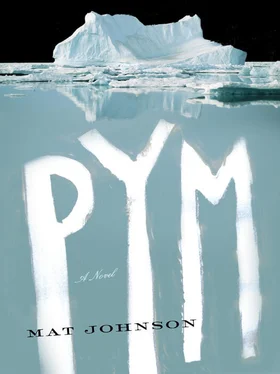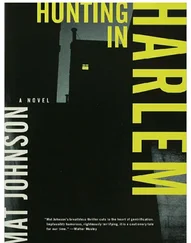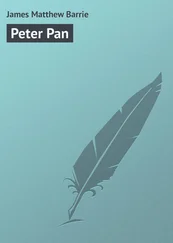Then Pym is attacked by a lion (an African lion, in the darkness: begin trend here). Except it’s not a lion, it is Tiger, Arthur Pym’s exceptionally beloved canine companion, who just happens to be in the hold with him. “For the presence of Tiger I tried in vain to account,” Pym tells us, and we agree, because for the thirty-odd pages that led up to this point, not one goddamn line was mentioned about any dog, a narrative error Poe tries to compensate for by telling us how much he really really really loved this pet. Eventually, after an extended period of time and pages during which even the reader becomes claustrophobic, we get word from Augustus about what has happened: the Negroes have uprisen.
Really, the mutineers are just the lower classes of the ship’s staff, led by a massive black cook. *Among this group is a man described as a half-breed Indian (the other half is given no race, so European ancestry — nonracial norm that it is — is the implied assumption). His name is Dirk Peters. Odd, however, is the description of this Peters:
He was short in stature — not more than four feet eight inches high — but his limbs were of the most Herculean mould. His hands, especially, were so enormously thick and broad as hardly to retain a human shape. His arms, as well as legs, were bowed in the most singular manner, and appeared to possess no flexibility whatever. His head was equally deformed, being of immense size, with an indentation on the crown (like that on the head of most negroes).… The mouth extended nearly from ear to ear; the lips were thin, and seemed, like some other portions of his frame, to be devoid of natural pliancy, so that the ruling expression never varied under the influence of any emotion whatever.
Negro what? Brothers and sisters, pause to check the backs of your skulls. Notice the primitive dwarfish size, bowed legs, and mouth ever conspicuous. Then compare Peters’s description to some of the other darkies haunting Poe’s collected works:
He was three feet in height.… He had bow-legs and was corpulent. His mouth should not be called small, nor his ears short. His teeth, however, were like pearl, and his large full eyes were deliciously white.
— Describing Pompey, in “A Predicament”
They had never before seen or heard of a blackamoor, and it must therefore be confessed that their astonishment was not altogether causeless. Toby, moreover, was as ugly an old gentleman as ever spoke — having all the peculiar features of his race; the swollen lips, large white protruding eyes, flat nose, long ears, double head, pot-belly, and bow legs.
— Describing Toby, in “The Journal of Julius Rodman”
These big-mouth animalistic pygmies with pairs of legs shaped like fallen over Cs, they are of the same nightmarish breed. Dirk Peters, we’re told, is not a Negro but a half-breed Indian probably of the “Upsaroka,” which we can assume is Poe’s reference to the Absaroka people. Or as we commonly call them, the Crow (darkness!). Narratively, Dirk Peters needs to be half Indian despite his Negroid traits because there is no such thing as a half Negro, according to the American “one drop” social reality. Either you are a Negro, containing some African ancestry, or you are not; half whiteness is not allowed. Peters must be at least half white because it is his shred of white decency that leads him to abandon the mutineers and assist Augustus in taking back control of the ship. To save the day, Pym imitates a ghost by covering himself entirely in white powder, then jumping out and startling the black-hearted mutineers. True to metaphor, the superstitious Negro mind is no match for the Enlightenment European intellect, and the three heroes regain control of the ship.
Shortly after this, as luck would have it, the Grampus is destroyed by inclement weather. These things happen. For another near third of the book, the sole survivors — Pym, Augustus, Dirk, and a guy named Richard Parker — cling to the driftwood that the capsized ship has become, steadily starving and dying of dehydration. The first imagined hope for rescue comes in the form of blackness, with a black ship moving toward them across the horizon, a man with “very dark skin” on deck nodding and “smiling constantly so as to display a set of the most brilliantly white teeth.” On arrival, it turns out to be just a decayed, blackened corpse, his smile the result of his lack of lips and his nodding the result of the fact that there is a seagull actively gorging on chunks of the dead man’s head, the bird’s “white plumage spattered all over with blood.”
Before long, the boys are forced to soil their own whiteness with gore as well. To fight starvation they must partake of the ultimate act of savagery: cannibalism. Not surprisingly, Parker, the least fleshed out character and a former participant in the mutiny, is the one who recommends this culinary choice, only to go on to literally draw the short straw. The line, the definitive line that separates civilized man from the primitive, is crossed. This is the sin that kills off Augustus, who poetically dies on the first of August despite his feast of man-meat. With little fanfare, this once central character melts away from the novel as if he never existed.
Why not eat the dog first? you might ask. Well, the dog is missing, having gone AWOL immediately after the mutiny. We know this not because we’re told but because we are not: no fate is given, Tiger’s simply gone, vanished from Poe’s mind without a mention despite his before stated importance. Not that this is simply an act of animal cruelty, because from the moment Augustus dies (a death we are at least informed of), Augustus too receives no mention for the rest of the book, which is only half completed by this point. Serial publication minded, Poe seems to have had little concern for the past or for continuity in this text. The work veers inconsistently from straight prose chapters to a dated journal finale. The only thing that appears to matter to him is the chapter at hand.
Before the doomed Parker can even be properly digested, rescue arrives in the form of the merchant ship the Jane Guy . By this time Pym and Peters, now the best of buddies it seems, discover that they have sunk far into the Southern Hemisphere. And they will be going farther, continuing down as the Jane Guy sails off to the South Seas for trading.
This is where things start to get interesting (really, they haven’t been tremendously until now). Here’s where things start to get surreal, where Poe starts to go off. This is where the darkies really start to bubble to the surface, where the Africanist presence jumps out and does its jig on the page.
I used to complain that the only things the white literary world would accept of Africa’s literary descendants were reflections of the Europeans themselves: works that focused on the effects of white racism, or the ghettos white economic and social disfranchisement of blacks created. I still think that, I have just come to the understanding that I’m no better. I like Poe, I like Melville, I like Hemingway, but what I like the most about the great literature created by the Americans of European descent is the Africanist presence within it. I like looking for myself in the whitest of pages. I like finding evidence of myself there, after being told my footprints did not exist on that sand. I think the work of the great white writers is important, but I think it’s most important when it’s negotiating me and my people, because I am as arrogant and selfish a reader as any other.

The Jane Guy finds a polar bear living wild in these southern seas. That’s right, a polar bear. It’s not simply that this bear shouldn’t be in the earth’s Southern Hemisphere — Poe gets many of his science facts wrong, particularly egregious considering that he plagiarized contemporary firsthand travel reports. At least he could have copied the information down correctly. No, what’s remarkable is the description of the bear itself:
Читать дальше













